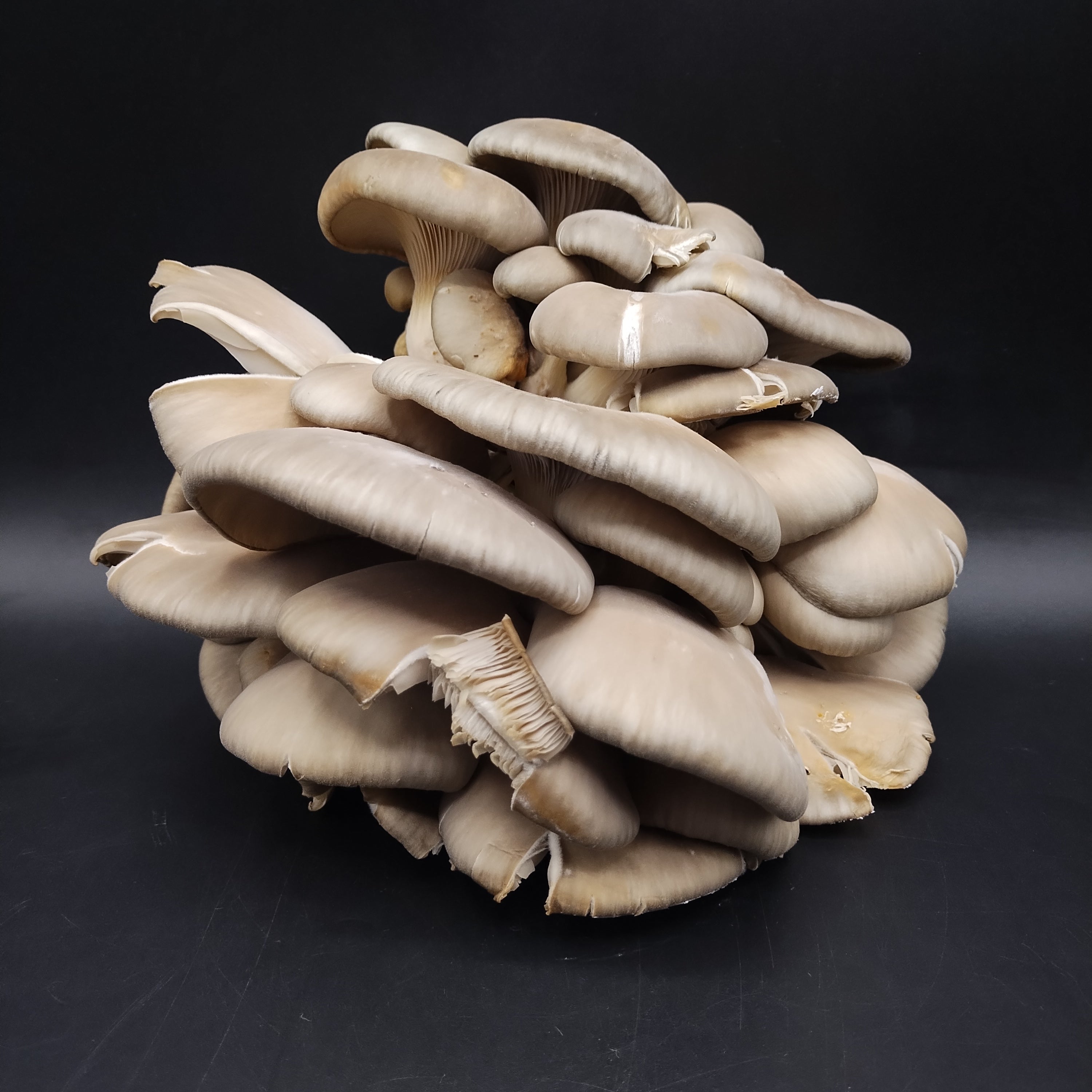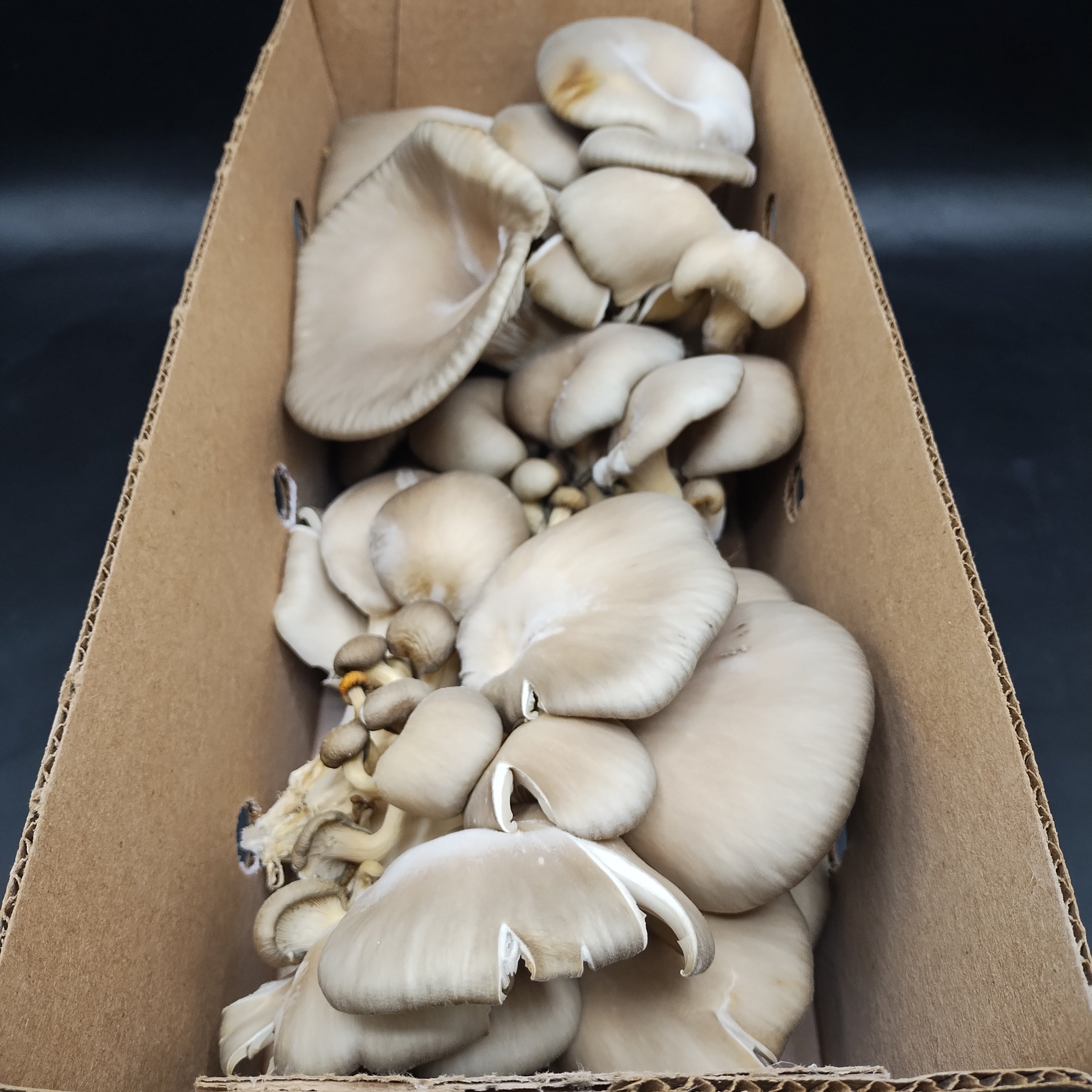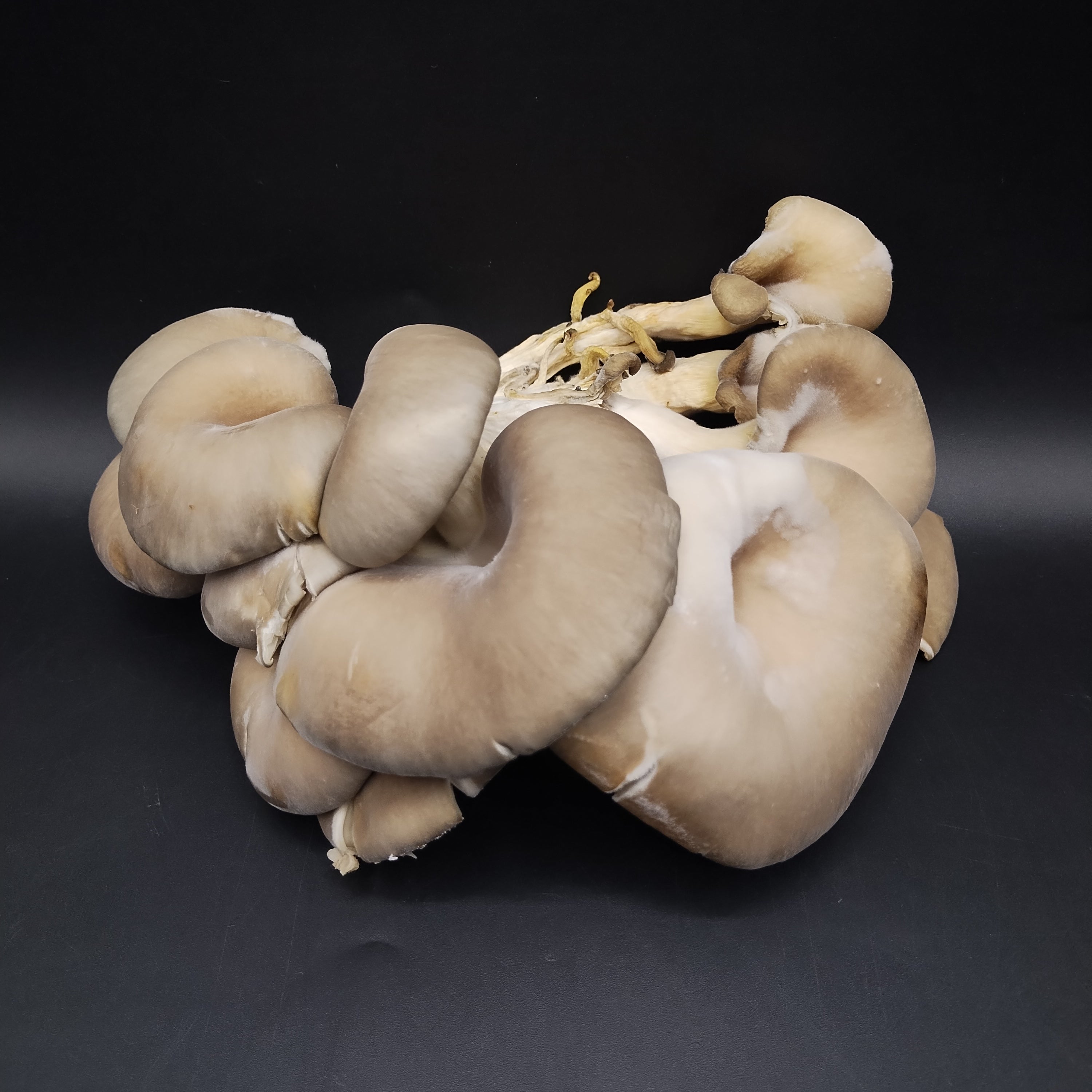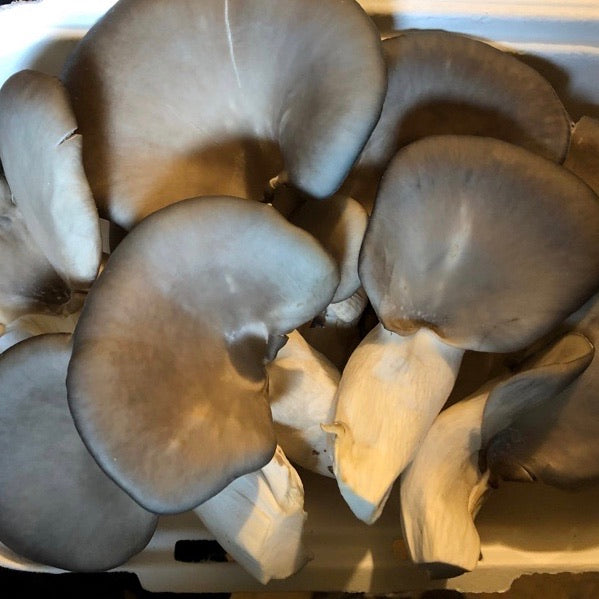Pleurotus Ostreatus var. Columbinus
“The Friendly Fairy”
Deep in the woods beside a little farm, live the Forest Fairies. They are subtle creatures: mild yet earthy, delicate yet woodsy, with smooth, velvety wings, and extremely good taste. This favourite nutty buddy is dubbed The Friendly Fairy, because it’s beloved by all, and has the ability to get along well with just about any dish it meets!
Our favourite way to enjoy these is to take an entire cluster and drizzle it with olive oil, then roast it on the barbeque or in the oven (at around 350°F) until tender and crispy. These versatile mushrooms are also a chef-favourite, bringing subtle flavour to sauces, soups, egg dishes or standing alone alongside grilled meat or vegetables. Store them in a paper bag in your fridge for up to a week.




